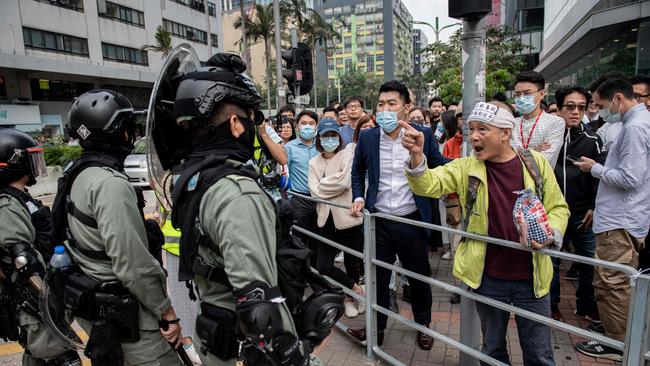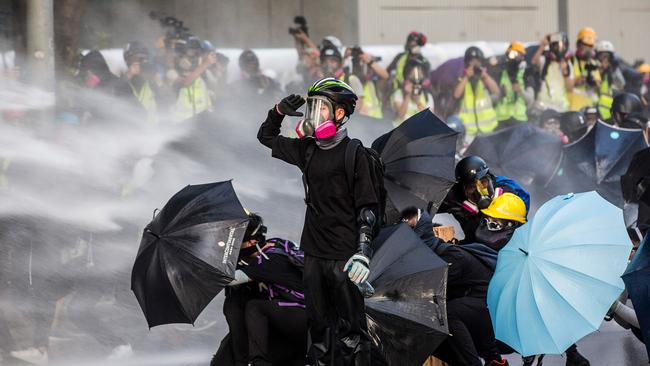
There is no doubt that if China takes tough action in Hong Kong it would be virtually impossible for the US to conclude a trade deal, including the phase one deal.
Similarly, it would be very difficult for the Europe to do a China deal. Such events would, of course, prolong the global downturn and cause share markets to fall sharply - dangerous in a US election year. But the consequences for China would be even more severe and would end Hong Kong’s traditional status.
Nevertheless, markets will be watching Beijing closely because there are hawkish forces that are very frustrated by the lack of action by China’s President Xi Jinping and those forces represent a danger to global economies and share markets.
READ MORE: China threatens to hit back at the US over Hong Kong | Growing economic divide fuelling unrest in Hong Kong
Food issues
But President Xi is aware of the risks to immediate prosperity in China and the dangers a prolonged dispute with the west might have on China’s food supplies.
A recent report from PwC, Rabobank, and Temasek concludes that Asia, including China, cannot feed itself and will require investment of another $800 billion in the next 10 years to produce more food for the region. China’s ability to provide the high quality food being demanded by its rising middle class is hindered by the pollution of so much of its arable land.
That’s why China Mengniu Dairy is buying Bellamy’s in Tasmania for $1.5bn and plans to pay Japanese beverage conglomerate Kirin $600 million to take over its Lion Dairy & Drinks portfolio.

The Lion brands include Dairy Farmers, Masters and Pura milk.
The Chinese diary giant clearly want to use these brands and associated plants to help fill the food gap. In essence, the Chinese are making strategic acquisitions to control the diary supply chain and opening up a bigger channel to China
Lion buys about 825 million “milk equivalent” litres a year from around 280 Australian dairy farmers, as well as 50 million kilograms of fresh fruit from around 85 fruit growers.
Mengniu currently buys milk from dairy processors in New Zealand and Europe but will step up its purchases from Australian suppliers.
These sorts of supply chain activities would be made much more difficult if there is an escalated trade war caused by a Chinese invasion of Hong Kong.
Annual review
The US and China have been negotiating a “phase one” trade deal since October. It covers tariffs, food and some areas of investment but does not cover difficult areas including telecommunications, artificial intelligence and similar issues.

The US measures require an annual certification of Hong Kong’s autonomy, and ban the sale of ammunition, including tear gas and rubber bullets, to Hong Kong police. That means the Hong Kong issue review will be an annual event which will make the proposed later stages of the trade deal much more difficult.
Meanwhile the residents of Hong Kong continue to hedge the future by buying property in Australia often in partnership with local Chinese.
They know that if the markets are wrong and the China loses patience then the first thing that will happen is that it will be made very difficult to send money abroad.
Although logic says there will not be a Hong Kong invasion and counteraction by the US we are dealing with two very strong-willed leaders. The share market depends on them not extending the current skirmishes into an all-out trade war.




In a strange way President Trump’s action in signing a bill that supports the democracy protesters in Hong Kong is likely to actually deter China from invading Hong Kong. At least that was the conclusion on Wall Street after the bill was signed. Shares rose to new records.